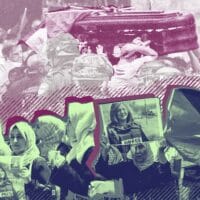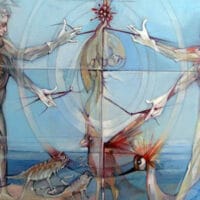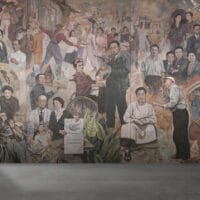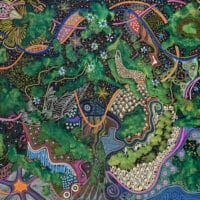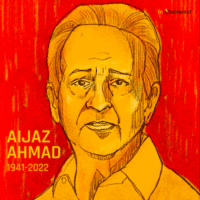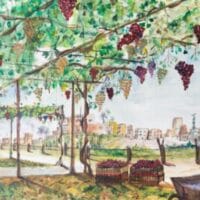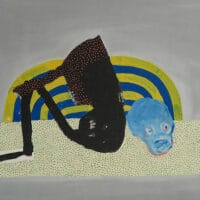-
Mali ejects the French military
In the first two weeks of May 2022, the Malian military government ejected the French military and withdrew from the French political project, G5 Sahel. Deep resentment spread across Mali because of the civilian casualties from French military attacks and because of the French government’s arrogant attitude towards the Malian government.
-
And then there was no more Empire all of a sudden: The Twenty-First Newsletter (2022)
U.S. President Joe Biden is to host the Summit of the Americas in June, where he hopes to deepen Washington’s hegemony over the Americas.
-
Is this the end of the French project in Africa’s Sahel?
Mali recently announced that it would no longer be part of the G5 Sahel. From the beginning, it was clear that the formation of the G5 Sahel was encouraged by France, and that the real focus was to be security.
-
Art is a dream in which we imagine our future: The Twentieth Newsletter (2022)
On 11 May 2022, an Israeli sniper fired at the head of the veteran Palestinian journalist Shireen Abu Aqleh as she reported on an Israeli military raid on a refugee settlement in Jenin (part of the Occupied Palestine Territories).
-
In a world of great disorder and extravagant lies, we look for compassion: The Nineteenth Newsletter (2022)
These are deeply upsetting times. The COVID-19 global pandemic had the potential to bring people together, to strengthen global institutions such as the World Health Organisation (WHO), and to galvanise new faith in public action.
-
With clenched fists, they spend money on weapons as the Planet burns: The Eighteenth Newsletter (2022)
Two important reports were released last month, neither getting the kind of attention they deserve. On 4 April, the Intergovernmental Panel on Climate Change’s Working Group III report was published, evoking a strong reaction from the United Nations’ Secretary General António Guterres.
-
I cannot live on tomorrow’s bread: The Seventeenth Newsletter (2022)
On April 19, the International Monetary Fund (IMF) released its annual World Economic Outlook, which forecasted a severe slowdown in global growth along with soaring prices. ‘For 2022, inflation is projected at 5.7 percent in advanced economies and 8.7 percent in emerging market and developing economies–1.8 and 2.8 percentage points higher than projected in… January.’
-
These dark times are also filled with light: The Sixteenth Newsletter (2022)
In early March, Argentina’s government came to an agreement with the International Monetary Fund (IMF) on a $45 billion deal to shore up its shaky finances. This deal was motivated by the government’s need to pay a $2.8 billion instalment on a $57 billion IMF stand-by loan taken out under former President Mauricio Macri in 2018.
-
We do not want a divided planet; we want a World without walls: The Fifteenth Newsletter (2022)
While the United States began its illegal war against Iraq in 2003, Cuba’s President Fidel Castro spoke in Buenos Aires, Argentina. ‘Our country does not drop bombs on other peoples’, he said, ‘nor does it send thousands of planes to bomb cities … Our country’s tens of thousands of scientists and doctors have been educated on the idea of saving lives’.
-
This is not the age of certainty. We are in the time of contradictions: The Fourteenth Newsletter (2022)
It is hard to fathom the depths of our time, the terrible wars, and the confounding information that whizzes by without much wisdom. Certainties that flood the airwaves and the internet are easy to come by, but are they derived from an honest assessment of the war in Ukraine and the sanctions against Russian banks (part of a broader United States sanctions policy that now afflicts approximately thirty countries)?
-
History rounds off skeletons to zero: The Thirteenth Newsletter (2022)
On 16 March 2022, as Russia’s war on Ukraine entered its second month, Kazakhstan’s President Kassym-Jomart Tokayev warned his people that ‘uncertainty and turbulence in the world markets are growing, and production and trade chains are collapsing’.
-
In the World, there are many traps, and it is necessary to shatter them: The Twelfth Newsletter (2022)
On 31 March 1964, the Brazilian military initiated a coup d’état against the democratically-elected progressive government of President João Goulart.
-
We are in a period of great tectonic shifts: The Eleventh Newsletter (2022)
The war in Ukraine has focused attention on the shifts taking place in the world order. Russia’s military intervention has been met with sanctions from the West as well as with the transport of arms and mercenaries to Ukraine.
-
Russia-Ukraine war began in 2014, not 2022
The war between Russia and Ukraine began much before February 24, 2022-the date provided by the Ukrainian government, NATO, and the United States for the beginning of the Russian invasion of Ukraine.
-
The life of a great Marxist: Aijaz Ahmad (1941-2022)
Aijaz Ahmad (1941-2022) died at home on March 9, surrounded by his books and papers, and by the warmth of his children and his friends.
-
In these days of great tension, peace is a priority: The Ninth Newsletter (2022)
It is impossible not to be moved by the outrageousness of warfare, the ugliness of aerial bombardment, the gruesome fears of civilians who are trapped between choices that are not their own.
-
Those who violated the Geneva Conventions at Guantánamo are free, while the man who helped expose their crimes languishes in prison: The Eighth Newsletter (2022)
Twenty years ago, on 11 January 2002, the United States government brought its first ‘detainees’ abducted during the so-called War on Terror to its military prison in Guantánamo Bay.
-
What red book will you read this year on Red Books Day (21 February)?: The Seventh Newsletter (2022)
Out of his world of struggle and his world of books emerged Pansare’s commitment to culture and to intellectual liberation. Along with his comrades, he set up the Shramik Pratishthan (Workers’ Trust), which not only published books but also held seminars and lectures. One of the most popular programmes organised by the Trust was the annual literary festival in honour of the Marathi writer Annabhau Sathe.
-
The Left has culture, but the World still belongs to the banks: The Sixth Newsletter (2022)
Dear friends, Greetings from the desk of the Tricontinental: Institute for Social Research. ‘[T]here is great intellectual poverty on the part of the right wing’, Héctor Béjar says in our latest dossier, A Map of Latin America’s Present: An Interview with Héctor Béjar (February 2022). ‘There is a lack of right-wing intellectuals everywhere’. Béjar speaks […]
-
Make noise about the silent crisis of global illiteracy: The Fifth Newsletter (2022)
In October 2021, the United Nations Economic Commission for Latin America and the Caribbean (ECLAC) held a seminar on the pandemic and education systems.




